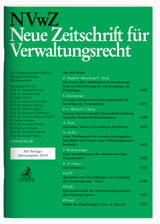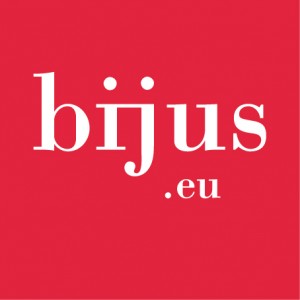Feb. 25, 2025

Der Beitrag beschäftigt sich mit dem franzöischen öffentlichen Recht der sog. Bioethik, d.h. die rechtlichen Rahmenbedingungen für Eingriffe in den menschlichen Körper von besonderer ethischer Sensibilität (Transplantationsmedizin, Stammzellenforschung, Embryonenschutz etc.) und der Rechtsprechung des Conseil d'États in diesem Rechtsgebiet. Die Autoren betonen dabei die besondere Kohärenz des französischen Modells, dasauf den Grundprinzipien der Würde, der Freheit und der Solidarität beruht.
Nov. 19, 2013
Données bibliographiques / Bibliografische Daten |
|---|
| Auteurs / Autoren: | FRANCOISE FURKEL |
|---|
| Année / Jahr: | 2013 |
|---|
| Type / Typ: | |
|---|
| Catégorie / Kategorie: | Droit de la famille, droit de la médecine, Familienrecht, Medizinrecht, Philosophie du droit, Rechtsphilosophie |
|---|
| Mots clef / Schlagworte: | Angehörige, BIOMEDIZIN, Patientenverfügung, BIOMEDECINE, proches du patient, volonté du patient |
|---|

Allemagne: le rôle majeur des proches au service d'une réelle autonomie du patient en fin de vie / The Central Role in Germany of the "Angehörige" in Enhancing Patient Autonomy at the End of Life
par/by Francoise Furkel, professeur émérité à l'Université de la Sarre/ Emeritus Professor at the Saarland University
Collection "Droit, bioéthique et société", Série "les Proches et la fin de vie médicalisée"/ "Families and End-of-life Treatment Decisions" series
Editions Bruylant, 2013.
Aujoud'hui existe une certaine uniformatisation des systèmes juridiques européens en matière de droit du patient à décider par avance du rejet de l'acharnement thérapeuthique ou de la mission pour les proches d'assurer le respect de la volonté du mourant. L'Allemagne ne fait pas exception à cet embryon d'uniformisation alors même qu'elle adopte souvent, dans les domaines de biomédecine notammen, des positions philosophies et juridiques très personnelles et parfois quelque peu étranges (selon l'auteur). Pour ce qui est du rôle des proches face à la fin de vie, la spécificité du droit allemand, si souvent évoquée, s'estompe quelque peu. L'auteur nous propose ici une analyse de la notion de "proche" au sens du droit allemand, avant d'exposer leur rôle auprès du patient en fin de vie. Elle en conclut que le domaine de l'intervention des proches, quels qu'il soit, est aujourd'hui très clairement défini, et que la législation actuelle poursuit principalement le but de sauvegarder et de respecter l'autonomie et la volonté du patient lui-même.
Nowadays s a certain degree of standardization of legal systems can be found, when it comes to the issue of the patient's right to take beforhand the decision to reject overly aggressive treatment or on the role of his/her family and close friends in ensuring the observation of dying person's will. Germany is no exception to this standardization trend, even though it has often adopted, particularly in the field of biomedicine, a very personal and sometimes somewhat unusual (according to the author) philosophical and legal approach. This oft-quoted specificity of German law is however substantially diminished when it comes to the role of family, close friends and next-of-kins at the end of life. The author proposes an analysis of the term of "Angehörige" (next-of-kins") in German law, before exposing their role at the side of the patient at the end of his/her life. She concludes that the field of intervention of next-of-kins, whoever they may be, has been the object of a clear circumscription, and that the currently applicable law first and foremost aims at safeguarding and respecting the patient's autonomy and will.
Apr. 27, 2012
Données bibliographiques / Bibliografische Daten |
|---|
| Auteurs / Autoren: | FURKEL, FRANCOISE; |
|---|
| Source / Fundstelle: | IN: LES ACTES DU COLLOQUE FRANCO-ALLEMAND D'ETUDIANTS ET DE CHERCHEURS
SUR
LA BIOETHIQUE. SARREBRUCK. UNIVERSITE FRANCO-ALLEMANDE 2002, P. 18 -
22.
(HTTP://WWW.JURA.UNI-SB.DE/PROJEKTE/BIBLIOTHEK) |
|---|
| Année / Jahr: | 2002 |
|---|
| Type / Typ: | |
|---|
| Catégorie / Kategorie: | Zivilrecht |
|---|
| Mots clef / Schlagworte: | ARZNEIMITTELGESETZ VOM 17.8.1994, BIOETHIK, BIOMEDIZIN, BIOTECHNOLOGIE, EMBRYONENSCHUTZGESETZ VOM 13.12.1990, FORSCHUNG, GENETIK, GENTECHNIKGESETZ VOM 20.6.1990, GESETZGEBUNG, KONKURRIERENDE-, Grundgesetz, Grundrechte, MEDIZINRECHT, NATIONALER ETHIKRAT, BIOETHIQUE, BIOMEDECINE, CONSEIL NATIONAL D'ETHIQUE, Droit civil, DROIT MEDICAL, DROITS FONDAMENTAUX, LEGISLATION CONCURRENTE, LOI FONDAMENTALE, RECHERCHE |
|---|
DANS CET EXPOSE, REALISE EN MARS 2002 A L'OCCASION DU 1ER COLLOQUE INTERDISCIPLINAIRE FRANCO-ALLEMAND SUR LA BIOETHIQUE, L'AUTEUR S'APPLIQUE A COMPARER LES PRINCIPALES SOURCES DU DROIT DE LA BIOMEDECINE EN FRANCE ET EN ALLEMAGNE. LA BIOMEDECINE QUI, RAPPELLE-T-ELLE, NE SAURAIT ETRE CONFONDUE AVEC LA BIOETHIQUE, SOULEVE NOMBRE QUESTIONS DONT LES REPONSES SE TROUVENT OU SONT SUSCEPTIBLES D'ETRE TROUVEES NON SEULEMENT DU COTE DE LA LOI, MAIS AUSSI DU COTE DE PLUSIEURS INSTANCES NON LEGISLATIVES, TELLES QUE LA JURISPRUDENCE, DIVERSES COMMISSIONS D'ETUDES OU ENCORE LES COMITES D'ETHIQUE. [BIBLI BIJUS: F. 29]

 Der Beitrag beschäftigt sich mit dem franzöischen öffentlichen Recht der sog. Bioethik, d.h. die rechtlichen Rahmenbedingungen für Eingriffe in den menschlichen Körper von besonderer ethischer Sensibilität (Transplantationsmedizin, Stammzellenforschung, Embryonenschutz etc.) und der Rechtsprechung des Conseil d'États in diesem Rechtsgebiet. Die Autoren betonen dabei die besondere Kohärenz des französischen Modells, dasauf den Grundprinzipien der Würde, der Freheit und der Solidarität beruht.
Der Beitrag beschäftigt sich mit dem franzöischen öffentlichen Recht der sog. Bioethik, d.h. die rechtlichen Rahmenbedingungen für Eingriffe in den menschlichen Körper von besonderer ethischer Sensibilität (Transplantationsmedizin, Stammzellenforschung, Embryonenschutz etc.) und der Rechtsprechung des Conseil d'États in diesem Rechtsgebiet. Die Autoren betonen dabei die besondere Kohärenz des französischen Modells, dasauf den Grundprinzipien der Würde, der Freheit und der Solidarität beruht.

